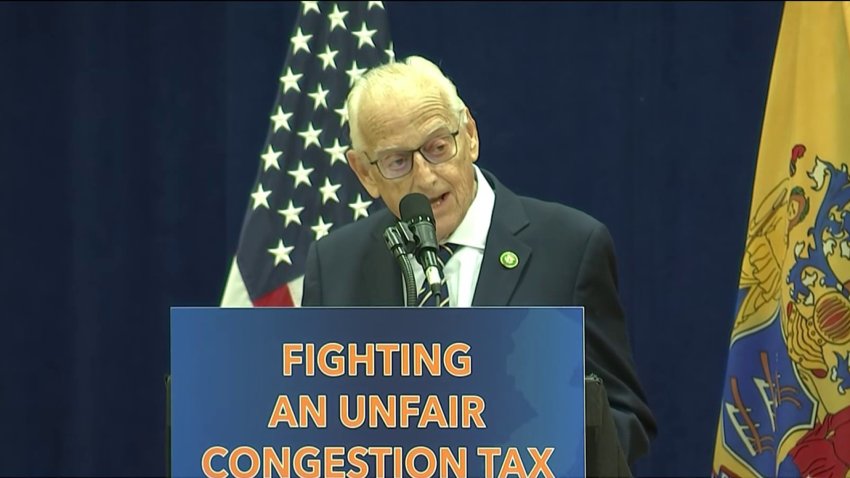The start date for New York’s historic congestion pricing has finally been set. News 4’s Andrew Siff reports on what to expect this summer.
What to Know
- Cars will be charged an additional $15 to enter Manhattan at 61st Street and below, while trucks could be charged between $24 and $36, depending on size. All toll readers have been installed
- There are some planned exemptions. Most of those include government vehicles. Yellow school buses with a contract with the DOE are also in the clear, as are city-owned vehicles. Some low-income New Yorkers can also apply for reduced rates.
- The MTA board overwhelmingly voted to approve congestion pricing in December, saying charging drivers to enter a swath of Manhattan would contribute millions of dollars to the aging transit system
Add truckers to the list of opponents seeking to block New York’s first-in-the-nation congestion fee for driving into Manhattan.
The Trucking Association of New York filed a federal lawsuit Thursday against the MTA, which developed the toll plan, arguing the higher fees unfairly and unconstitutionally target the trucking industry. The trucking association’s lawsuit is among at least eight seeking to block the congestion fee plan, which is slated to launch June 30.
Watch NBC 4 free wherever you are
Under the transit authority's plan, trucks will be subject to a charge of $24 or $36 per trip, depending on their size. Most drivers in private passenger cars, in contrast, should expect to pay about $15, with lower rates for motorcycles and late-night entries into the city, according to the proposal finalized in March.
Kendra Hems, the trucking association’s president, said the industry will have no choice but to shoulder the increased costs, as truck operators don’t have flexibility on their driving routes or schedules, which are generally set by the businesses they serve.
Get Tri-state area news delivered to your inbox with NBC New York's News Headlines newsletter.
That, she said, will only lead to price increases on countless goods, as the trucking industry moves nearly 90% of products in New York City.
“As any responsible business does, we deliver when our customers ask us to deliver, which is during prime business hours,” said Joe Fitzpatrick, founder of Lightning Express Delivery Service and a member of the trucking association’s board. “That will not change now, but what will change is higher costs for New Yorkers as a result.”
News
The association suggests that the transit authority revise its plan to exempt the industry from the fee, limit trucks to being tolled just once a day or toll them at the same rate as passenger vehicles.
A spokesperson for the MTA declined to comment on the suit Thursday.
A Manhattan federal court judge earlier this month heard arguments in lawsuits brought by unionized public school teachers, politicians and other New Yorkers.
In New Jersey, a federal court judge has also heard arguments in legal challenges brought by New Jersey Gov. Phil Murphy, Fort Lee Mayor Mark Sokolich and others.
Many of those lawsuits argue the tolling scheme was approved by federal transportation officials without proper scrutiny and the court should order transit officials to conduct a more comprehensive environmental study before rolling out the plan.
Both judges have not yet ruled in the cases.
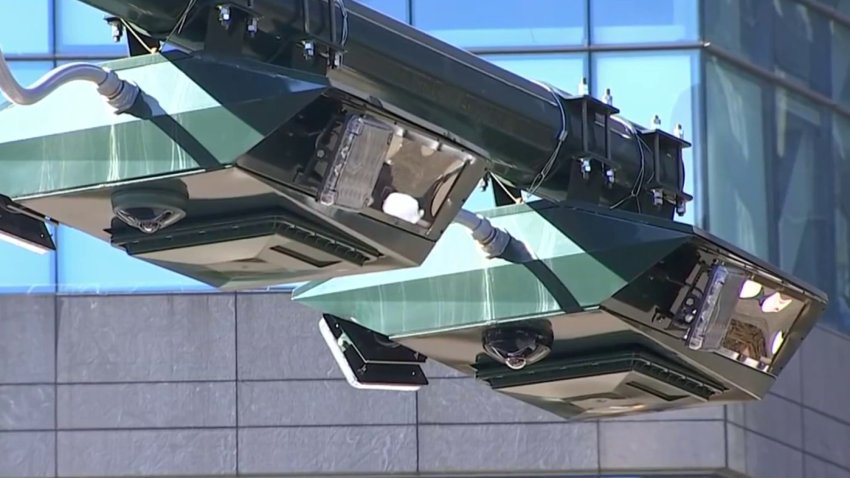
How does congestion pricing work?
Congestion pricing would impact any driver entering what is being called the Central Business District (CBD), which stretches from 60th Street in Manhattan and below, all the way down to the southern tip of the Financial District. In other words, most drivers entering midtown Manhattan or below will have to pay the toll, according to the board's report.
All drivers of cars, trucks, motorcycles and other vehicles would be charged the toll. Different vehicles will be charged different amounts — here's a breakdown of the prices:
- Passenger vehicles: $15
- Small trucks (like box trucks, moving vans, etc.): $24
- Large trucks: $36
- Motorcycles: $7.50
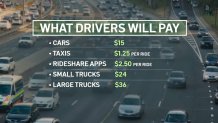
The $15 toll is about a midway point between previously reported possibilities, which have ranged from $9 to $23.
The full, daytime rates will be in effect from 5 a.m. until 9 p.m. each weekday, and 9 a.m. until 9 p.m. on the weekends. The board called for toll rates in the off-hours (from 9 p.m.-5 a.m. on weekdays, and 9 p.m. until 9 a.m. on weekends) to be about 75% less — about $3.50 instead of $15 for a passenger vehicle.
Drivers will only be charged to enter the zone, not to leave it or stay in it. That means residents who enter the CBD and circle their block to look for parking won't be charged.
Only one toll will be levied per day — so anyone who enters the area, then leaves and returns, will still only be charged the toll once for that day.
The review board said that implementing their congestion pricing plan is expected to reduce the number of vehicles entering the area by 17%. That would equate to 153,000 fewer cars in that large portion of Manhattan. They also predicted that the plan would generate $15 billion, a cash influx that could be used to modernize subways and buses.
Here's a full breakdown of the congestion pricing plan from the MTA.
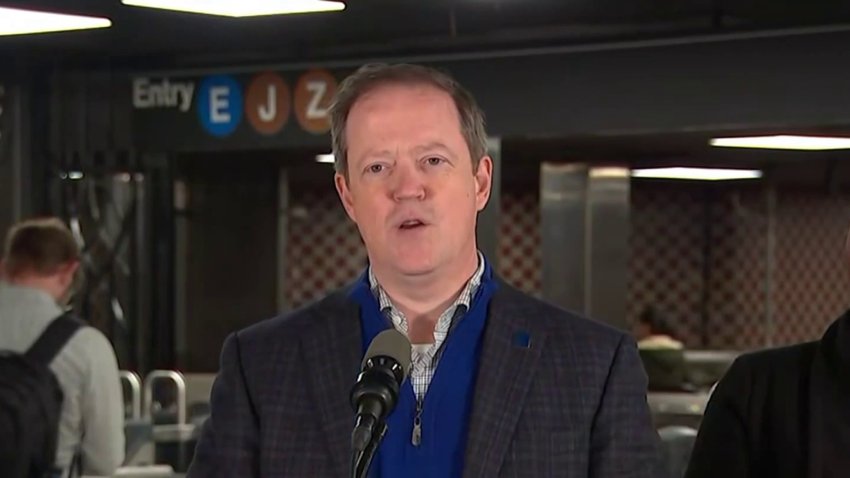
More to know about congestion pricing
For months, the MTA board whittled down proposals and heard tens of thousands of public comments to inform a final decision going for a vote this week.
Despite what officials say were overwhelming public comments "in favor" of congestion pricing by a 2-to-1 margin, a number of vocal groups have stood in opposition, many seeking an exemption from the daily cost to drive in part of Manhattan.
Public hearings paved the way for the final vote on March 27, when the plan was given final approval. For their part, the MTA has insisted that they are merely implementing state law aimed at cleaning the air and modernizing mass transit — conditions a majority of commenters supported at those public hearings.
"We all know that the infrastructure has to be replaced. We need new trains and signals — congestion pricing at this point is the stream that provides the funding for those things," said New York City Transit Senior Vice President Demetrius Crichlow.
Tolling will begin starting at 12:01 a.m. on June 30. Any one of the lawsuits filed against congestion pricing could bring the plan screeching to a halt, but the MTA has said it believes it will win them all.
All of the MTA's 110 toll readers are in place and ready to go.
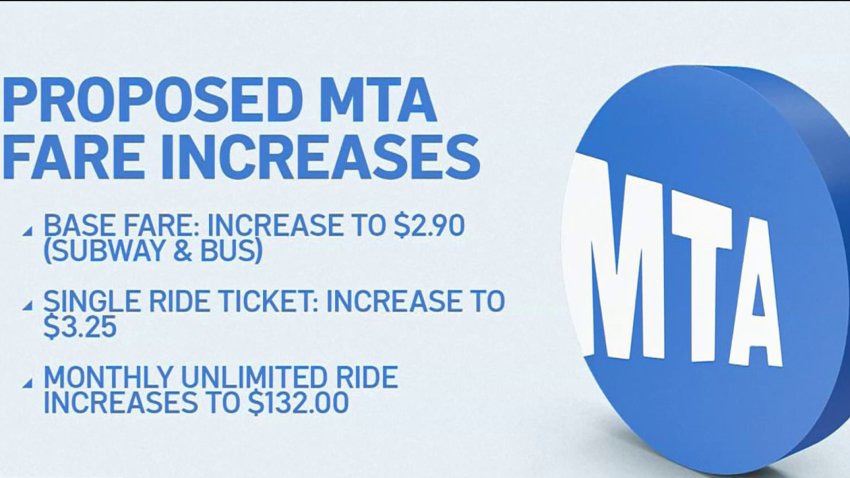
Cars will be charged an additional $15 to enter Manhattan at 61st Street and below, while trucks could be charged between $24 and $36, depending on size.
The MTA board overwhelmingly voted to approve the measure in December, saying charging drivers to enter a large swath of Manhattan would contribute millions of dollars to the city's aging transit system.
The approval came after the Traffic Mobility Review Board delivered its report to the MTA on Nov. 30, laying out the general guidelines for the impending tolls, including costs, when certain prices will be in effect, who gets credits and more.
Here's a breakdown of everything that was approved in December, and what comes next in the process.
